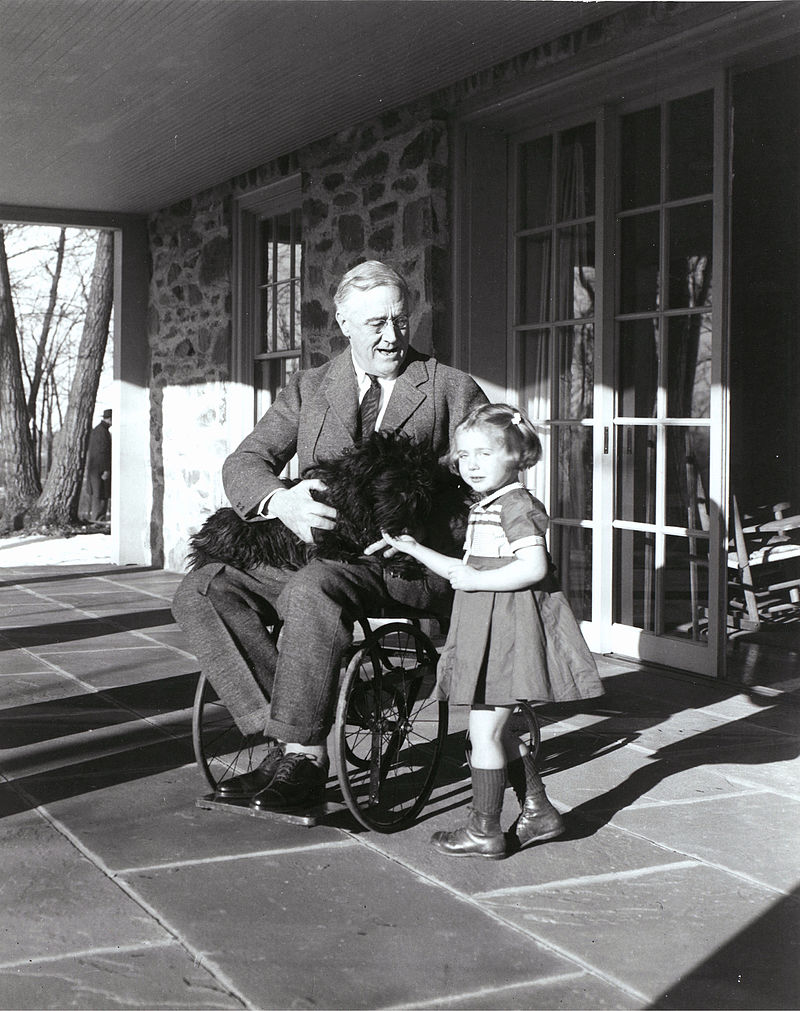-
Things to Do
-
Plan
-
About


Dutchess Tourism is committed to continuing to learn about ways we can make our destination more accessible. By communicating with local attractions, towns and businesses we can keep the conversation moving forward, and make Dutchess County inclusive for individuals with special needs and their families.
We were excited to talk with Jeff Urbin from the Franklin D. Roosevelt Presidential Library and Museum. Below, you'll learn more about FDR's personal experience with polio, and how the Library and Museum strives to be an inclusive destination for all.

I am Jeff Urbin the Education Director at the Franklin D. Roosevelt Presidential Library and Museum. I am in charge of all of the Library's education programs from second grade to adult learners, and I head the Library's Distance Learning programs and accessibility efforts as well.
Franklin D. Roosevelt was the 32nd President of the United States and he led the nation out of the Great Depression and the world to victory over Hitler and the Axis Powers in World War II. FDR was born right here in Dutchess County and he always considered it his home. He created the nation's first Presidential Library - the only one used by a sitting President - right here in Dutchess County. The Library contains more than 17 million pages of documents, 50,000 books and 35,000 museum objects relating to the Roosevelt Era. It is known around the world as the preeminent center for research and learning about the Roosevelt era, which includes the papers of First Lady Eleanor Roosevelt as well. Each year hundreds of thousands of people from across the country and around the world visit the Library and Museum.
President Roosevelt contracted polio in August 1921 at the age of 39 while vacationing with his family in Canada. At first his entire body was impacted and he was so weak he could barely lift a pen to sign his name. Eventually the disease settled in his legs and he was never able to stand or walk unassisted again. He is the only person in American history to be elected to such a high office with such a severe disability and he refused to let it prevent him from doing the work the American people expected from their President.

The Roosevelt Presidential Library is an accessible destination. The visitor center is all one level and the introductory film is closed captioned. The Library building has closed-captioning on exhibits for individuals with hearing impairments, elevators and resting benches for folks with mobility concerns and some tactile objects for individuals with vision impairments. Each quarter special hours are arranged for visitors who are sensory sensitive. Exhibit lights and audio are dimmed and stim kits and a safe room with a private bathroom are available for families visiting with a member on the spectrum who might need a little quiet space to regroup.
In 2020 the Library received an award from the Dutchess County Executive's Workforce Investment Board and the Think Jobs Committee for our commitment to "Think DIFFERENTLY" and embracing the values of inclusion through education and we are currently working with the Friends of the Roosevelt Memorial in Washington, D.C. to develop programs for individuals with disabilities and activities for the Roosevelt Memorial in our nation's capital.

Currently, the Library is closed due to the pandemic, but we look forward to welcoming back all visitors in what we hope will be the not too distant future. We believe that Franklin and Eleanor Roosevelt stand as excellent role models for facing and overcoming adversity and we look forward to sharing the lives and lessons of these two great Dutchess County residents with all the world!
If you are a Dutchess County based attraction, town, or business with special programming, services, or initiatives geared towards accessible travel, we'd love to hear from you! Email info@dutchesstourism.com and let us know what you're doing, and if you'd be interested in being a future Guest Blogger!
Covid-19 Information
Our top priority is the safety, health, and wellbeing of our community, its residents and visitors.
Information for visitors & residents Information & Resources